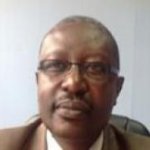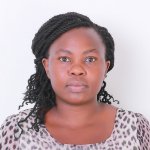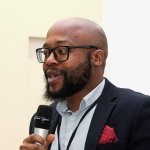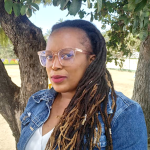Building collective ownership of single-use plastics waste in youth communities: case studies from Kenya, Jamaica, and Malawi
This project addresses the impact from pollution by single-use plastics (SUP) waste, designing intervention tools such as social media campaigns, school presentations and competitions, schools/universities collaborative projects and policy recommendations and guidelines which will have an impact on the reduction of SUP waste and will support the attainment of the United Nation’s Sustainable Development Goals.
There is generally no sense of collective ownership of environmental issues and waste becomes a problem when no-one accepts ownership. Plastics waste, especially single-use plastic (SUP), is an example of the problems arising from this lack of community ownership. Many young people are habituated to using plastics without considering fully their negative impacts. Building on existing research within this team (e.g. Earth Ambassadeurs School Plastic Project in Jamaica), this project will seek to identify tools that can build collective awareness and motivate action to minimise SUP in youth communities. Three case studies in Kenya, Jamaica and Malawi will be undertaken to evaluate communication options including online and other virtual tools to support the objective of reducing SUP within: schools (Jamaica and Kenya)and universities (Malawi). Results will be used to prepare relevant policy documents and guidelines as part of governance frameworks and will build on the work of the Governing Plastics Network.
The project intends to address the impact from pollution by SUP waste, supporting the objectives of Sustainable Development Goals (SDG) 8 to promote economic development and sustainable growth; 11 to make cities and human settlements inclusive, safe, resilient and sustainable; 12 to ensure sustainable consumption and production patterns; 14 to conserve and sustainably use the oceans, seas and marine resources for sustainable development; and 15 to protect, restore and promote sustainable use of terrestrial ecosystems.
Testing tools for eliminating future plastics waste
This extension to the original project looks to creatively address the challenges of eliminating future plastic waste by testing tools with youth communities in Kenya, Malawi and Jamaica. Its primary driver is to create cleaner growth through more circular, decarbonised approaches to plastics utilisation, thereby eliminating future waste.
The project on ‘Testing Tools for Eliminating Future Plastics Waste’ project supports the Engineering and Physical Sciences Research Council's (EPSRC) research themes ‘Living with Environmental Change’ and ‘Manufacturing the Future', by focusing on novel ideas and solutions that include consideration of materials, recycling processes, consumer behaviour and systems (including legal, fiscal and policy systems) set within a context of environmental and health benefits.
Building on existing research within the team in the project ‘Building Collective Ownership of Single-Use Plastics Waste in Youth Communities: Case Studies from Kenya, Jamaica, And Malawi’, this new project will refine and test the intervention tools which are under development for the purpose of managing the use of single-use plastic in youth communities. Three test sites are being established in Kenya, Jamaica and Malawi for the evaluation of the tools. Results will be used to prepare relevant policy documents and guidelines as part of governance frameworks and will build on the work of the Governing Plastics Network.
The project is underpinned by the objective of promoting economic development and welfare and developing countries’ long-term sustainable growth by eliminating the impacts, costs and pollution caused by plastic waste on land and sea. It correlates especially with Sustainable Development Goals (SDGs) 8 to promote economic development and sustainable growth; 11 to make cities and human settlements inclusive, safe, resilient and sustainable; 12 to ensure sustainable consumption and production patterns; 13 to take urgent action to combat climate change and its impacts; and 14 to conserve and sustainably use the oceans, seas and marine resources for sustainable development, harnessing the vision of youth in addressing a problem adversely impacting developing countries."
Project team
UK team

Professor Rosalind Malcolm
Principal Investigator

Dr Itziar Castello Molina
Co-investigator

Professor Chanaka Jayawardhena
Co-investigator

Dr Noreen O'Meara
Co-investigator

Dr Tiago de Melo Cartaxo
Post-doctoral Research Assistant

Dr Matthew Peacock
Research Fellow
Kenya team

Professor Nicholas Oguge
Co-investigator
Dr Francis Oremo
Network Manager

Salome Ondigo
Project assistant
Caribbean team

Professor Anthony Clayton
Co-investigator

Dr Andrea Clayton
Project Partner

Dr Kwame Emmanuel
Legal and Communications Expert
Malawi team

Professor Thoko Kaime
Co-investigator

Isabelle Zundel
Research Assistant

Tisungeni Malawula Kaime
Co-investigator